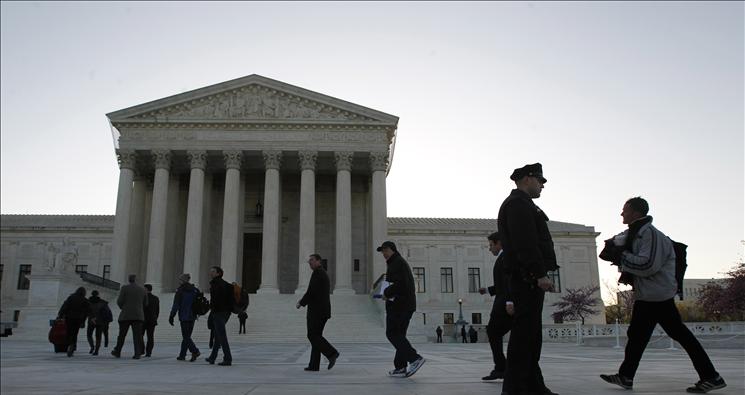SCOTUS Agrees to Hear HHS Mandate Challenges
On June 28, 2012, in one of its most consequential and controversial decisions ever, NFIB v. Sebelius, the U.S. Supreme Court upheld the constitutionality of the Affordable Care Act’s “Individual Mandate.” In her partial concurrence and dissent in that decision, Justice Ginsburg observed:
A mandate to purchase a particular product would be unconstitutional if, for example, the edict impermissibly . . . interfered with the free exercise of religion.
As far as the Supreme Court is concerned, Justice Ginsburg’s example is no longer a speculative one. Today, the high court announced it will decide whether the government mandate that requires employers to purchase and provide abortifcacient drugs in an employee health plan (the HHS Mandate) impermissibly interferes with the free exercise of religion.
The two cases by which the Court will decide this issue are Hobby Lobby v. Sebelius and Conestoga Wood Specialties v. Sebelius. In Hobby Lobby, the Tenth Circuit Court of Appeals handed down a resounding victory for religious freedom. (The ACLJ filed an amicus brief in support of Hobby Lobby at the Tenth Circuit.) The court held, against the strenuous arguments by the Department of Justice to the contrary, that Hobby Lobby and Mardel, a Christian bookstore chain, are “persons” protected by the Religious Freedom Restoration Act. (This federal statute, often abbreviated as “RFRA,” requires a federal law or regulation, like the HHS Mandate, to survive strict scrutiny if it substantially burdens a person’s exercise of religion.) The Tenth Circuit further held that government’s interest in imposing the Mandate on objecting employers like Hobby Lobby “cannot be compelling because the contraceptive-coverage requirement presently does not apply to tens of millions of people.”
In Conestoga Wood, the Third Circuit arrived at a completely different (and wrong) result. That court held that neither the corporation (a woodworking business in Pennsylvania) nor its Mennonite owners could challenge the Mandate. The court said that the Mandate doesn’t require the owners to do anything in violation of their religious beliefs and that a for-profit corporation has no rights of religious freedom at all.
In these two cases, the Supreme Court will be able to address and settle -- once and for all -- the various issues over which the lower courts have disagreed: whose religious exercise is substantially burdened by the Mandate? The corporation’s? Its owners’? Does the Mandate serve a compelling governmental interest? If so, has the government used the least restrictive means of further that interest? In sum, does the Mandate impermissibly burden the religious exercise of businesses and their owners who conscientiously object to providing the required drugs and services?
With today’s decision, it is most likely that other cert petitions challenging the legality of the Mandate, like the ACLJ’s, will be held by the Court pending its decision in Hobby Lobby and Conestoga Wood.
Our work, however, is not done. The ACLJ will submit amicus briefing to the Court arguing what we have been arguing from day one: that the federal government cannot conscript private citizens into kowtowing to a government edict that violates their religious beliefs. We will keep you posted as these momentous cases move forward at the high court.
